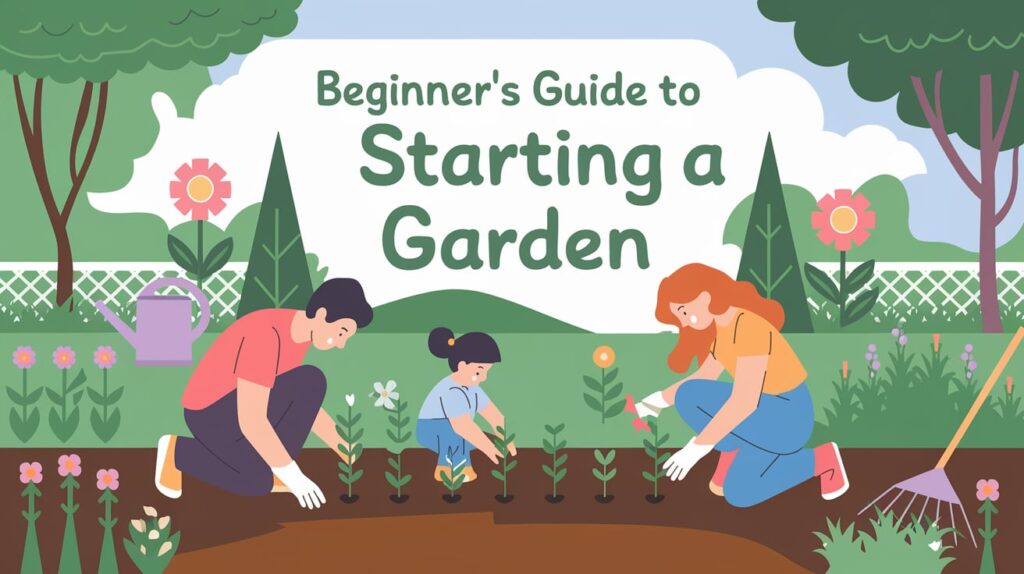Beginner’s Guide to Starting a Garden: Cultivating Your Green Oasis

Gardening is more than just an activity; it is an immersive journey into the realm of nature, a labor of love that yields beauty, nourishment, and tranquility. For the uninitiated, stepping into the world of horticulture can seem daunting, but with the right knowledge and approach, anyone can nurture a flourishing garden. This comprehensive guide will illuminate the foundational steps to cultivating your own green sanctuary.
Selecting the Perfect Garden Spot
Before you plunge your hands into the soil, careful selection of your garden’s location is imperative. Plants are like silent poets, thriving in an environment that best suits their needs. Observe your chosen space meticulously—how much sunlight graces it? How does water drain? What is the quality of the soil? Ideally, most edible and flowering plants require a minimum of six hours of direct sunlight. If space is limited, consider vertical gardening or container planting to maximize potential.
Understanding Your Soil Composition
Your garden’s soil is its lifeblood. Assess its texture—is it sandy, loamy, or clay-heavy? Conduct a soil test to determine its pH level and nutrient composition. A balanced soil with good drainage and aeration will lay the foundation for a thriving garden. Amendments such as compost, aged manure, and organic fertilizers can enhance soil fertility, ensuring your plants receive essential nutrients.
Choosing Your Plants Wisely
Not all plants flourish in every climate. Research which flora thrives in your local growing zone and choose accordingly. Beginners may find success with resilient plants such as tomatoes, basil, marigolds, and lavender. Consider companion planting to optimize growth—certain plant pairings can deter pests, improve soil nutrients, and encourage pollination.
Mapping Out Your Garden Design
A well-thought-out layout is key to a productive and visually pleasing garden. Sketch a plan that accounts for plant heights, spacing requirements, and companion planting benefits. Taller plants should be positioned strategically to avoid shading smaller ones. Implement pathways for easy access, and consider incorporating raised beds or trellises to enhance structure and efficiency.
Mastering the Art of Watering
Water is the elixir of life for your plants, but overwatering is just as detrimental as underwatering. Establish a consistent watering routine, preferably in the early morning or late evening, to prevent excessive evaporation. Invest in a soaker hose or drip irrigation system to provide deep and efficient hydration, minimizing water wastage while ensuring plant roots receive ample moisture.
The Importance of Mulching
Mulch serves as a protective layer that shields your soil from erosion, conserves moisture, suppresses weeds, and enhances overall soil health. Organic mulches such as straw, wood chips, or shredded leaves gradually decompose, enriching the soil with vital nutrients. A well-mulched garden fosters a resilient and self-sustaining ecosystem.
Fostering a Natural Defense Against Pests
A flourishing garden will inevitably attract an array of visitors, some welcome and others less so. Instead of resorting to chemical pesticides, opt for natural deterrents. Encourage beneficial insects like ladybugs and praying mantises, introduce aromatic herbs such as rosemary and mint to repel pests, and practice crop rotation to minimize soil-borne diseases. Organic gardening methods cultivate a balanced environment where nature regulates itself.
The Joy of Harvesting and Beyond
After weeks of diligent care, the moment of reward arrives—harvest time. Gather fruits, vegetables, and herbs at their peak ripeness for the best flavor and nutrition. But gardening doesn’t end with the harvest; rather, it marks the beginning of a cyclical relationship with nature. Save seeds for the next planting season, compost plant debris to enrich future soil, and revel in the continuous cycle of growth and renewal.
Cultivating Patience and Perseverance
Gardening is an art that requires patience, observation, and adaptability. Not every seed will sprout, and not every plant will thrive, but each setback presents an opportunity to learn. With time, your garden will transform from a collection of plants into a harmonious ecosystem—one that nourishes both the body and the soul.
Final Thoughts
Embarking on the gardening journey is an enriching endeavor that connects us to the rhythms of the earth. Whether you have a sprawling backyard or a modest balcony, the act of tending to plants fosters mindfulness and a deeper appreciation for nature’s intricate wonders. Begin with curiosity, nurture with dedication, and soon, you’ll find yourself amidst a thriving oasis that speaks of your care and devotion.